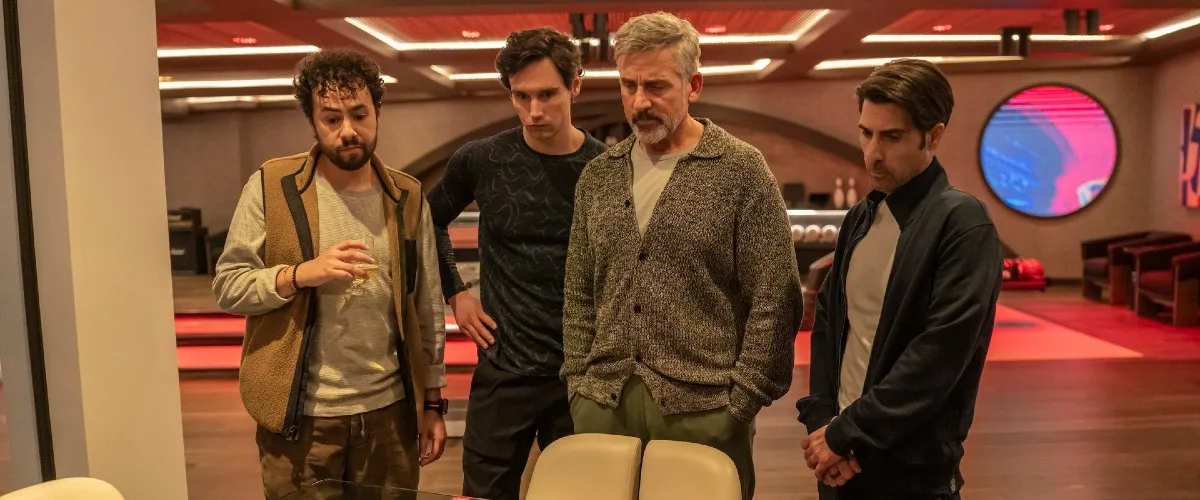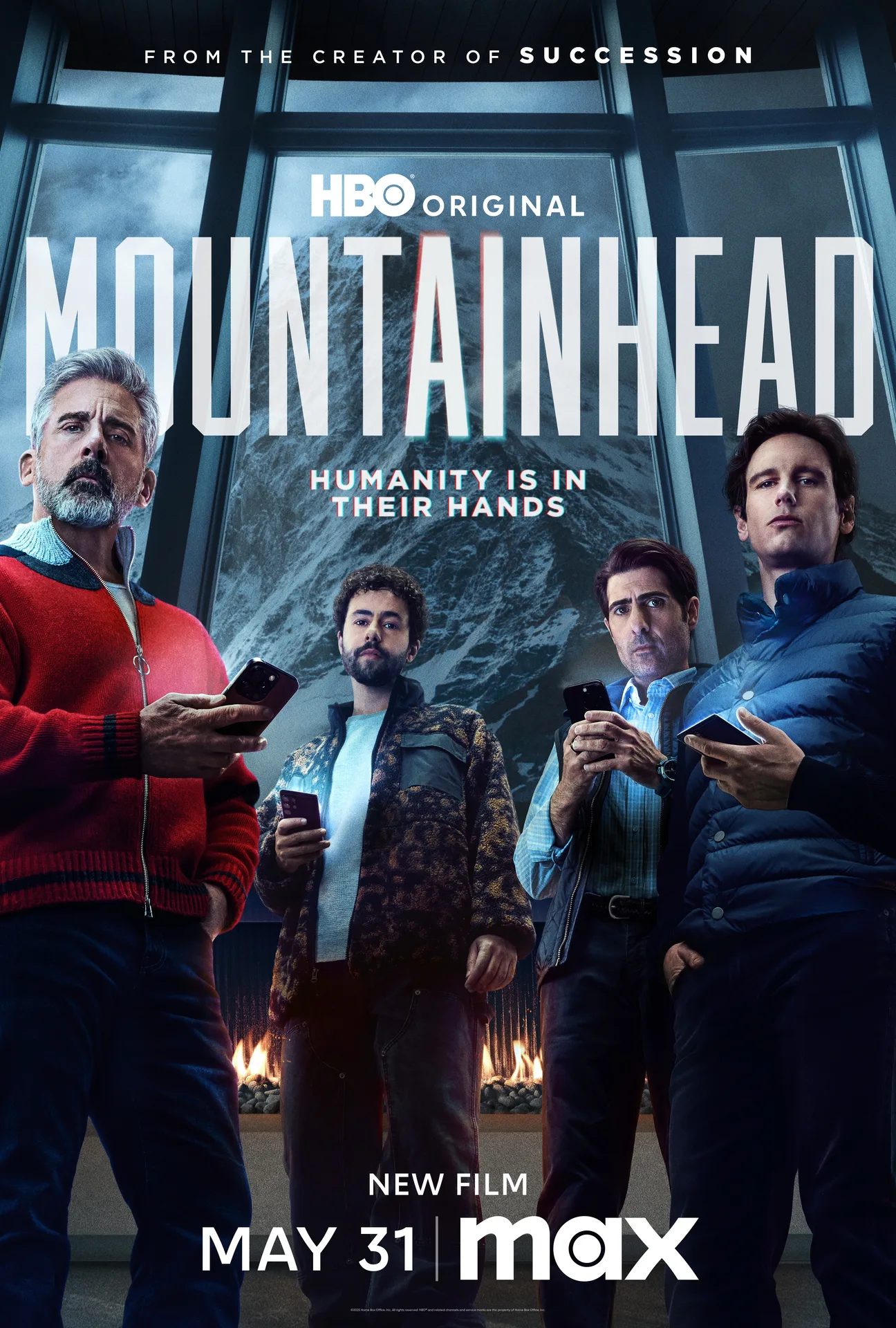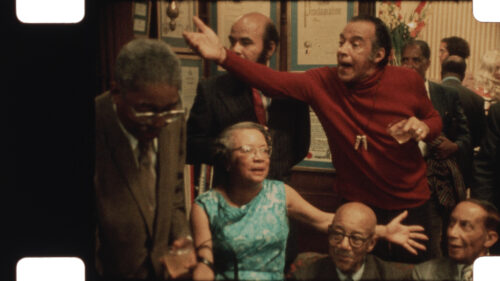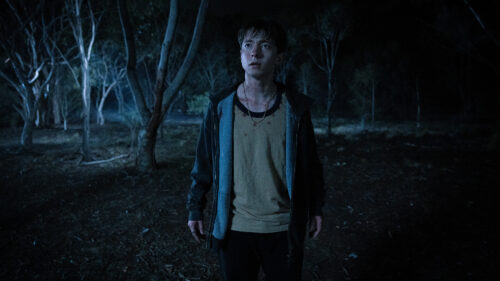Near the end of the acclaimed series “Succession,” media titan Logan Roy addresses his assembled children: “I love you, but you are not serious people.” Arguably, the fact that this tinpot King Lear was himself considered “serious” is implicitly an indictment of the culture that creates such metrics, but never mind. The point is that the series, created by writer-director Jesse Armstrong, had a figurehead the viewer could take seriously. The salient point of “Mountainhead,” in which four little boys in the bodies of grown men fiddle—they believe they do so industriously, but they’re mistaken, just as they’re mistaken about so much else—while the world burns, is this: the serious people have left the building.
Steve Carell is Randall, the venture capitalist, the wannabe sage who’s so high on his own supply he thinks he can dismiss a dire diagnosis from a physician by telling himself that the doctor “is very likely an oaf; certainly a simpleton.” So that’s that then. Cory Michael Smith is “Venis,” a name the social media titan calls himself; he’s quite a Musky piece of work, utterly humorless even as he laughs at his own “jokes.” Ramy Youssef is Sam, a cockeyed optimist on behalf of the AI moderation system he may or may not allow Venis access to. Being the only person in this grouping with even a lick of common sense and possibly decency, he’s eventually seen as an enemy to be crushed. Hosting them all in a monstrous glass-and-steel mansion atop what is probably an Alp is Jason Schwartzman’s Hugo Van Alk. Having not yet achieved billionaire status, this app guy, who’s touting a meditation tool, is the poorest of this group, his fortune topping off at a bit over five hundred million. (He is nicknamed “Soups” by his buddies, on account of his “soup kitchen” net worth.)
This summit was proposed by Hugo as a “no deals” hangout—“molly” is mentioned, and poker nights are scheduled—but they can’t help but talk business. These futurists are utopians with zero interest in the kind of future that we poor suckers under the Alps might aspire to. Instead, they speak in awe of one in their number who “could get us to post-human in five.” They also drop maxims like “the worse the disease, the more valuable the cure” and speculate on the “timeline on uploading the human consciousness.” For all that, when Hugo turns on one of his kitchen sinks and no water comes out, not a one of these fellows thinks to go downstairs and check out the pipes. What they can’t stop checking are their phones, which tell an apocalyptic story. Widespread riots, bank failures, toppling governments, more and worse. All of which the fellows find kind of…curious. They can’t acknowledge their impotence in the face of a scenario they helped create, they can only think of ways they might profit from it. Hugo dallies with the idea of taking over one or another South American country.
Armstrong’s version of tech-bro bantering is a lot more literate and zingy than actual tech-bro bantering would be, otherwise the picture would be rather a bore. After a while, it begins to evanesce, like ice-breath does in the mountain air. What’s left is a necessarily cold despair. Under which may lie an implicit call to arms, or at least an entreaty wrapped in snark: get serious, people.




















